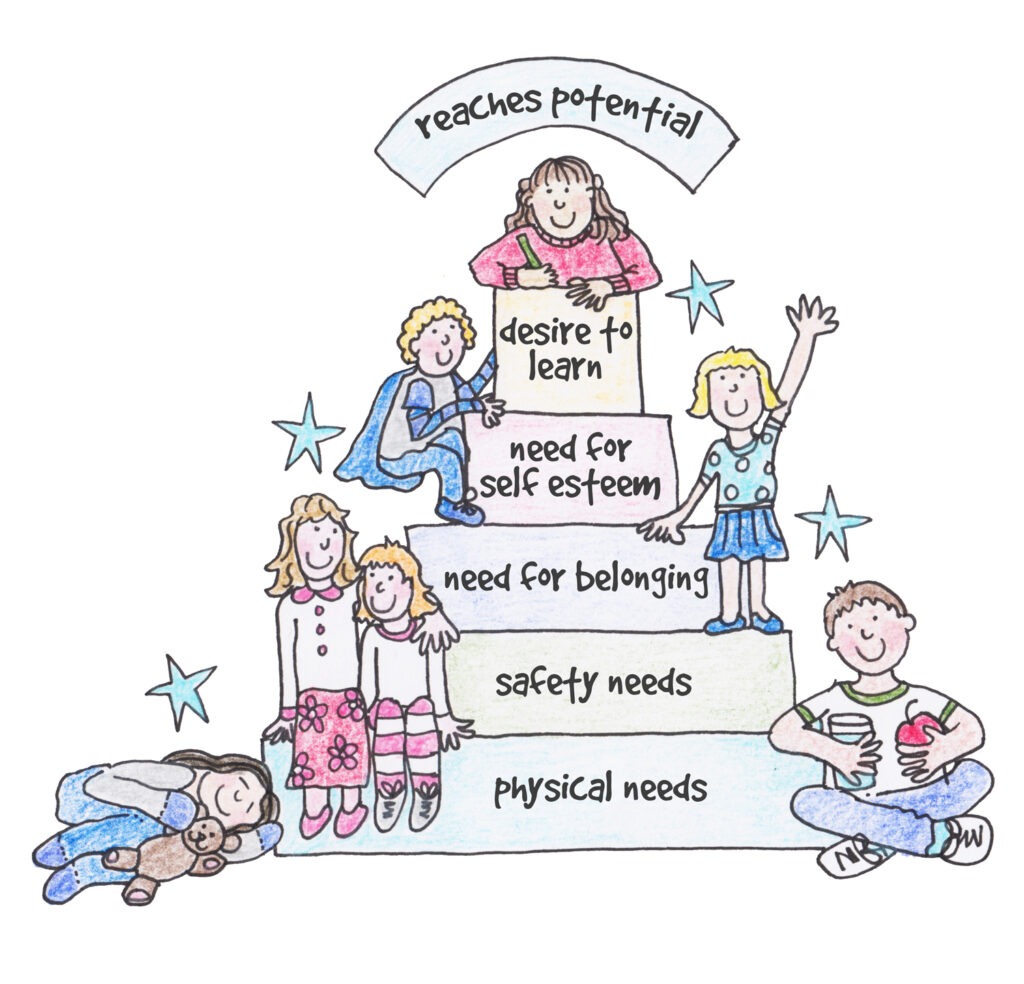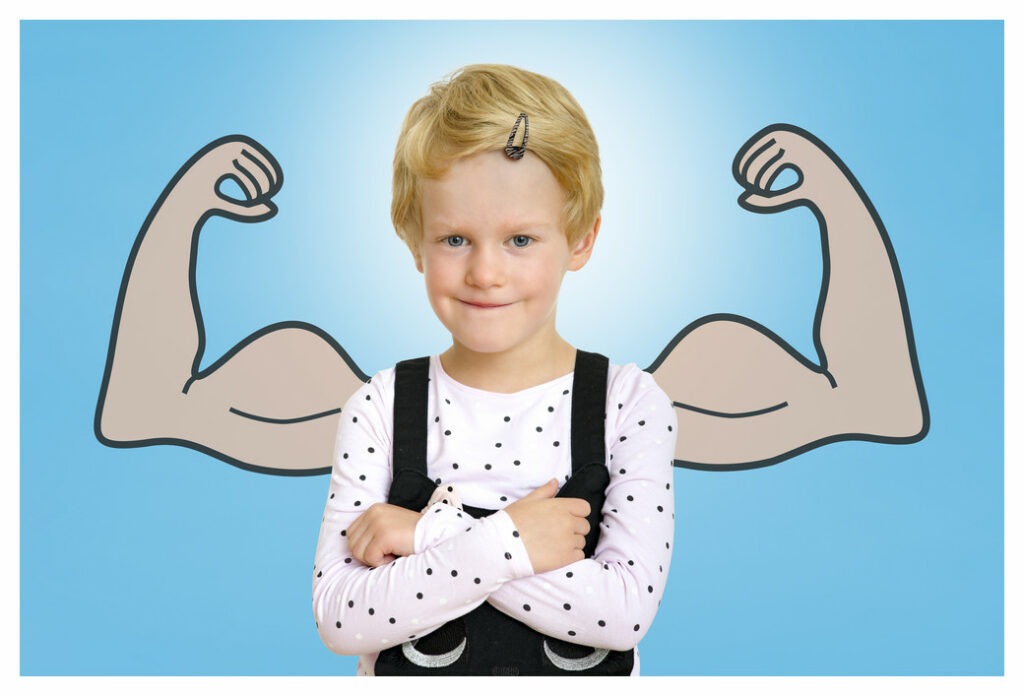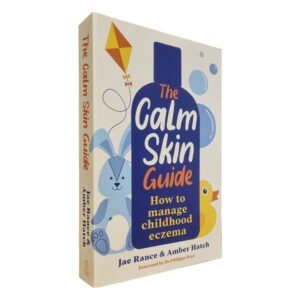Building self esteem in children – Why it matters and how to do it



As parents we all want our child to be happy and confident going to school and to be in the best possible state both physically and mentally for learning. We have looked before at ways to build your eczema child’s self confidence, but having recently attended a parenting course on managing self esteem we decided to share what we learned in a brand new post.
What is self esteem and why is it so important for learning?
Self esteem is the way we see ourselves and our worth. Positive self-esteem is an essential foundation for happiness and therefore something we all want to help our children achieve. With positive self esteem children know their inherent value in the world. It allows children with long term conditions like eczema to understand that they aren’t governed by their condition. It is not defined by behaviour, appearance or material possessions, it is innate. They can be confident in their own abilities and take pride in them. Furthermore, they have self respect, they know what they deserve out of life and what they shouldn’t put up with.

In 1943 the renowned psychologist Abraham Maslow wrote a paper entitled “A Theory of Human Motivation”. In essence, this paper described what we require in order to achieve happiness and success. Perhaps the best known and most often quoted part of this paper is the “hierarchy of needs.” This model is still considered the most accurate representation of what we require to reach our full potential. This covers all human beings throughout the world, no matter their race or culture
Maslow broke emotional priorities into building blocks. In order to move upwards, the previous ‘block’ has to be in place. In other words, you cannot progress without the previous set of needs being met. This diagram shows a simplified version of Maslow’s hierarchy. This version relates to children and learning, nevertheless, it follows the exact order and needs he wrote about in relation to adults.
Physical needs
The first stage is physical needs. Human beings cannot survive without these being met. We require food, drink, shelter, sleep and oxygen. A child who is tired, ill or malnourished will not want to socialise or learn. For eczema sufferers sleep is one of the first things to be impacted. In addition, the constant itchiness is distracting and uncomfortable. Sleep deprivation affects parents as well as children.
Safety needs
The second stage is safety needs. For school aged children in the first world, this equates to meeting emotional needs. Listening to them, giving them someone to talk to, cuddling them, playing with them and making them feel loved, happy and protected from personal danger or threats. Fear is a crippling emotion, especially for children. In order to forge relationships they need to feel safe. For a child with eczema, it also means having compassionate people around them to help with managing their condition.
Belonging
The third stage is the need for belonging. If the previous two stages are in place we develop a longing for companionship and to be part of a group. For school-aged children the need for belonging includes:
- Being part of a family
- Being part of a class and overall school community
- The ability to get and give love
- The need to share inner thoughts with others in a caring way
Self-esteem
The fourth stage is the need for self esteem. People need to feel they add value and matter to the world around them. They need to feel confident, capable and able to earn the respect of others. For school aged children they begin to look to their teachers and peers for the recognition, attention and appreciation which they previously depended on immediate family for. They are figuring out who they are in a group situation and how they maintain their position within it.
Only after all these stages have been met do we achieve the desire to learn and reach our full potential.
As a parent this is a lot to process. It stands to reason that if my child does not turn up at school well fed, well rested, happy, secure and confident he isn’t going to be able to focus and learn. However with all the best intentions in the world we can’t avoid sleep disturbances like a really awful nightmare, the occasional flat refusal to eat breakfast or an argument with a sibling on the way to school which ends in tears just as the bell is ringing. Do this uncontrollable factors mean your child will suffer academically?
If it’s not happening regularly then the answer is no. However, it does underline the importance of putting those building blocks in place. Positive self esteem is a vital foundation for confidence and we can make sure we are providing our children with an environment that supports and nurtures their self esteem from the very beginning. Any human being who lacks confidence will be unable to deal with criticism or setbacks and be afraid of the unfamiliar or of making mistakes. The need to seek reassurance from other sources makes it extremely difficult to make decisions and personal choices.
Overall, children need to feel that they are on track for their age.
How do we build positive self esteem in our children?
The things we say
As adults we have a huge vocabulary and enough life experience to know that not all words should be taken literally. However some things we say like “you nearly made me jump out of my skin” or “I’m so hungry I could eat a horse” can sound terrifying to a really small child! There are lots of ways we can unintentionally convey negative messages to our children about themselves. This is especially true when we are exasperated and telling them off. “You ought to be ashamed of yourself” or “why can’t you just behave?” may be said on the spur of the moment but if you stop and think how it sounds to a child it’s very sobering. This article on positive reinforcement and things you shouldn’t say to your child is great.
For kids with obvious eczema, this is especially important. They are likely to hear or overhear plenty of negative things about their appearance. We as parents need to ensure that our eczema children understand that these comments are largely thoughtless and meaningless. Yes, their skin can look sore on some days, but it will heal. And they are so much more than their sore skin.

Value your child’s individual temperament
Remember that everyone has their own way of looking at the world, especially children.
A three year old boy will probably look at a drawer full of saucepans and see an opportunity to do some drumming. An eight year old might see something to catch tadpoles with. Actually, they could be used for either purpose, although to you they are there to make dinner. The three year old’s drumkit may be noisy and annoying but it is also joyful and creative. The eight year old’s tadpole catcher is unhygienic and probably impractically heavy but it demonstrates an interest in learning and nature. Both very different yearnings but both equally powerful.
To create a balanced environment for everyone it is important to make sure that everyone gets their turn with the saucepans (so to speak!) Brace yourself for the noise and sit on the floor to play the drum kit. Praise the creative play and join in. Go hunting for tadpoles and make it into an adventure. Express your happiness that your child is so interested in learning about how tadpoles become frogs and point out how much fun you will all have watching them grow because of his interest. Then, of course, be sure to give your saucepans a good scrub!
Even when you don’t understand or share an interest it’s important to accept that it matters to your child and they want it to matter to you too. As long as they are sharing their interests and thoughts with you, you are able to nurture and guide them.
The little things that matter and make a difference
There are things that every parents can do every day to help their school aged child deal with the inevitable knocks they will face.
- Praise the process not the result. If your child has tried really hard with something and not got a good result this can be hugely disheartening. What you can do is point out how hard they worked and how proud you are of them for that. It doesn’t matter what the end result was – as long as they tried their very best you are happy.
- Allow them the chance to express their disappointment. When you are five it’s ok to be sad you didn’t win the sack race. Telling them not to be silly because you’re embarrassed by their tears on sports day isn’t helpful to them (and it isn’t going to stop them crying either!) Let them tell you how they feel and then validate it and give them a positive closing thought. “I can see you are very sad about that race and that’s ok, but do you remember last year you couldn’t even jump? Now you are good enough to come third! Look how far you’ve come on in a short time, that’s great!” Recognising an emotion and naming it makes it far easier to deal with than squashing it.
- Accept that they are going to set store by what their peers think but remind them of their own unique value. It might be that they got picked last to play football but that’s ok because they are really good at running. If you can encourage them to take pride in their own personal strengths they will always have something to counter the negatives with.
- Physical contact. A cuddle, holding their hand or even just stroking their hair is an important sign of closeness and love to children.
- Attention from other trusted adults. Whether it’s helping a neighbour in the garden, going for a bike ride with an uncle or learning to fish with Grandpa – individual attention and interaction with other grown ups is a huge self esteem boost to children.
- Down time. It’s tempting to sign up to every club going in the interests of making them into well rounded little people. But actually children need time at home in familiar surroundings to just relax and unwind.
- One on one time with you. It may seem obvious but it’s harder to manage than you might think. The reason kids enjoy bedtime is because they have your undivided attention. There is no ironing board in their bedroom… You aren’t checking your phone or keeping an eye on the dinner whilst you read them their bedtime story.
- Give them the sense that somebody or something changed for the better BECAUSE OF THEM. “I’m so glad you were here to give Daddy that big hug after work, you made him feel so much better”. Just as you have the power to influence their mood and day, show them that they have that power too.
The overall most important thing your child needs from you to develop positive self esteem is your time
We may be materially rich but we are time poor. In this technology fuelled day and age more so than ever. Be available and unbusy to make room for calm learning every day. Yes, it’s hard when you are working and have a million things to get done, but ten minutes is all it takes and it will make the world of difference to your child.
What about the times you’re not there?
If you know your child is feeling wobbly sending them off to school can be heartbreaking. The good news is that there are things you can do to help them create a positive “forcefield” to protect them from the words or actions of others.
You can help them create a really powerful positive thought that they can go to when they are feeling insecure. This might be a memory or something they are really looking forward to like going on holiday or buying a new toy. Get them to describe all the positive emotions they have around this thought to you to cement it in their minds. Perhaps they could write about it or if they are too young for that draw a picture. It will give them something to focus on and give them real comfort.
Teach them the importance of personal boundaries and how it is good to protect these. Give them some well rehearsed phrases to hand to reinforce them when you aren’t there – “Please stop, I don’t like it” or “I don’t want you do that, it makes me feel bad” for example. Show them the positive power of words even when they are being used negatively against them.
Give them something physical like a funny family photograph to keep in their pocket as a touchstone. When they feel anxious they can put their hand on it as an anchor back to their positive thoughts and happy memories.
Demonstrate their capability
Finally, it is really important to show your child how capable they are – this is a huge boost to positive self esteem and will give you a chance to heap genuine praise on them whilst they get a sense of achievement. Think small and take your lead from them.
Ways to do this may include:
Organising something
Such as sorting the clean washing into piles, what belongs to who. This is an easy task and something they can do alongside you. Other examples might include cooking a meal or tidying a messy shelf.
Influencing
Giving them full control over something. For example allowing them to decide what colour they would like their new bedroom to be or choosing their own clothes.
Cooking
This is brilliant as it uses so many skills. Time planning, maths for measuring, reading, creativity…and they get an edible result which they can share with others.
Family games
Teach them the important lesson that they can’t always win but that the effort they put in and the enjoyment it gives others is equally important and satisfying.
Letting them make mistakes
Don’t automatically stop them from making little mistakes. It is really important that they do as they will learn from them and grow as a result. Your brain builds on experiences and if they know it’s ok to make mistakes they will relax and be more open to trying new things.
As Peter Mcintyre said “Confidence comes not from always being right, but from not fearing to be wrong!”
As well as sharing our experience of bringing up an eczema child (and favourite allergy-friendly recipes), ScratchSleeves also manufacture and sell our unique stay-on scratch mitts and PJs for itchy babies, toddlers and children. We now stock sizes from 0-adult in a range of colours. Visit our webshop for more information.
The Calm Skin Guide
Love our blog? It's also available in book format with:
- First hand accounts from parents & medical professionals
- Easy navigation
- Comprehensive index
- Additional material
Signed copies available at no extra cost
Written by:
Reviewed by:
Interesting article? Don't keep it to yourself...
Read next...
You may also find helpful...
Quick buy


Multi Buy Discount

Spend between £30 - £60 and save 5%
Spend between £60 - £120 and save 10%
Spend over £120 and save 15%
Discount automatically applied at checkout
No Quibbles Guarantee

ScratchSleeves abide by a no quibbles guarantee.
Free UK Postage

Free packing and postage on all UK orders. For overseas orders to Europe postage is from £3.50, to USA is £6.50 and to the rest of the world, from £3.75.







